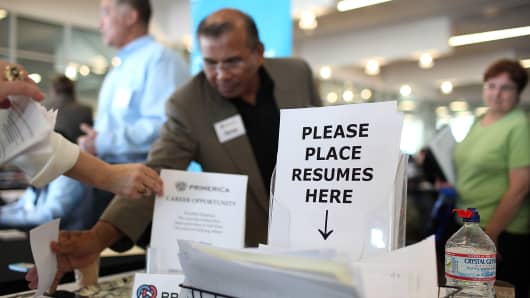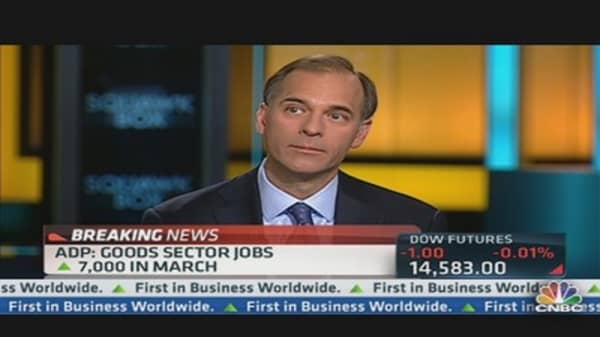With focus now on Friday's government jobs report, Main Street is largely wondering: Where's the recovery?
While actual job creation among small-business owners is inching up ever so slightly, longer-term hiring plans are taking a "dive," according to the National Federation of Independent Business. "It seems that the stamina for growth is waning, even with decent reports on consumer spending at the macro level," the group's chief economist, William Dunkelberg, said in a statement.
"Small businesses need a shot in the arm; but seeing as this is unlikely, the slow crawl to eventual prosperity might be the best we can hope for," he said.
Turns out what's happening in the broader U.S. economy—a wobbly employment picture—is playing out among mom and pops. Private sector job creation was considerably less than forecast for March. That report was released jointly by ADP and Moody's Analytics on Wednesday. The report serves as a preview to Friday's nonfarm payrolls report.
(Read More: Work Slowdown? ADP Says Job Creation Slowing)
To be clear, job creation among small-business owners is drifting positive, Dunkelberg said this week. The owners reported raising employment an average of 0.19 workers per firm for March—the best reading in a year, and the fourth consecutive month of small business job growth.
In fact, much of the private sector job creation last month came from small businesses of fewer than 50 employees, which added 74,000 positions, according to the ADP report.
Speed Bumps Ahead
But those hiring gains aren't exactly a barn burner. Plans to create small-business jobs tumbled in March, falling 4 points to a net zero percent of small employers, who plan to increase total employment, according to the NFIB's survey for March.
(Read More: Weekly Jobless Claims Get Weaker as Outlook Dims)






